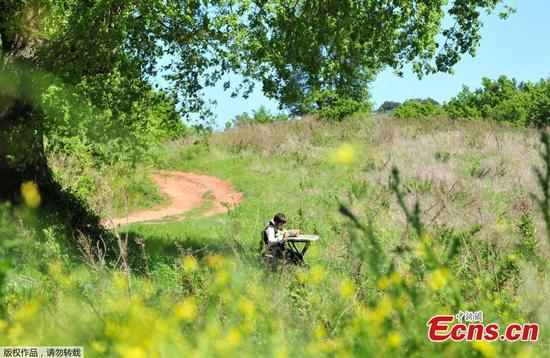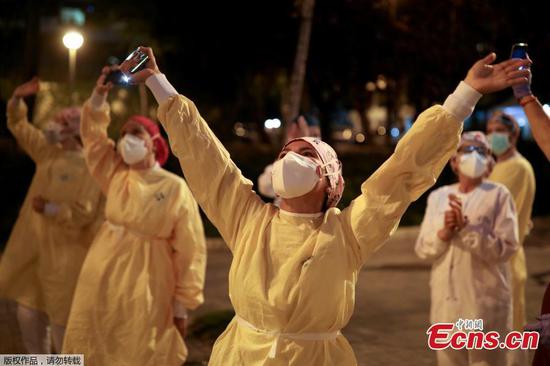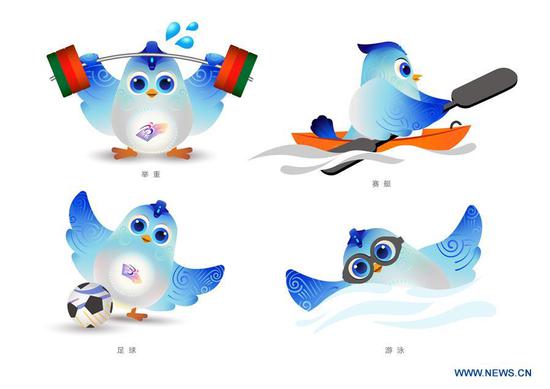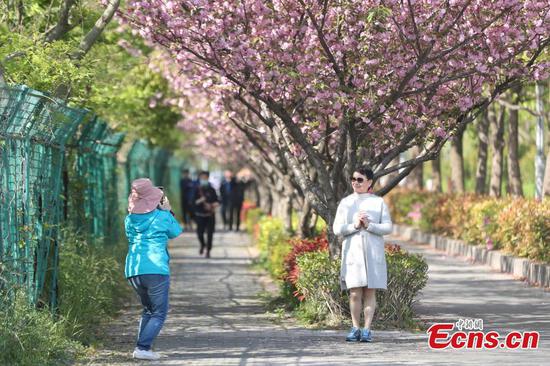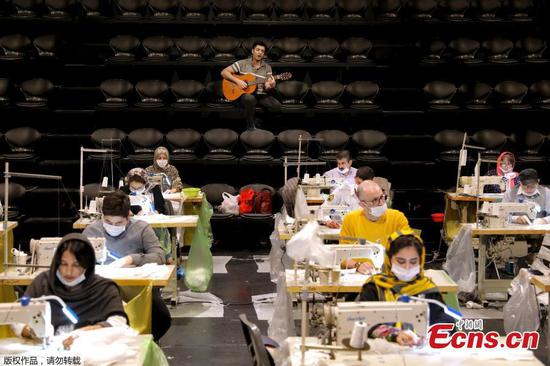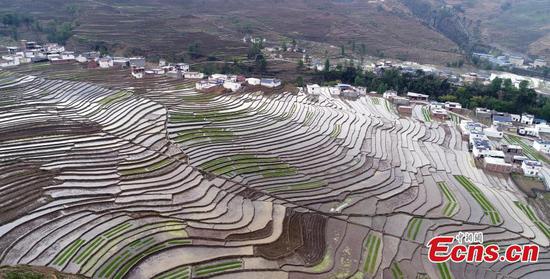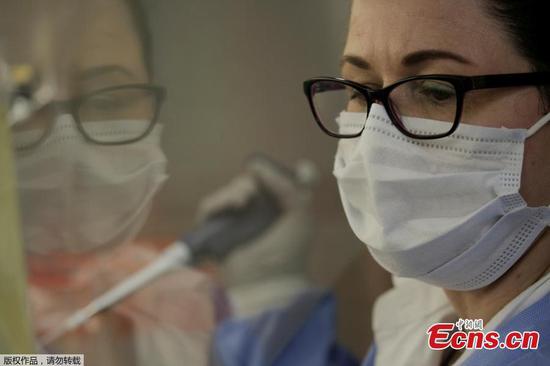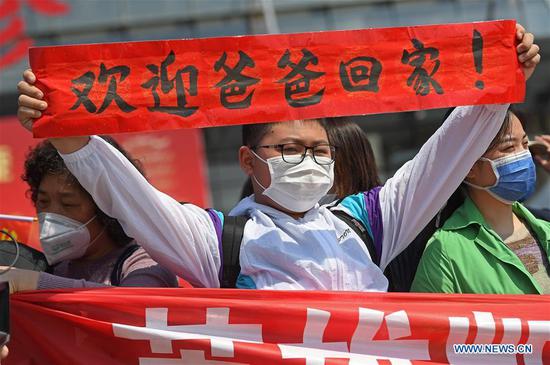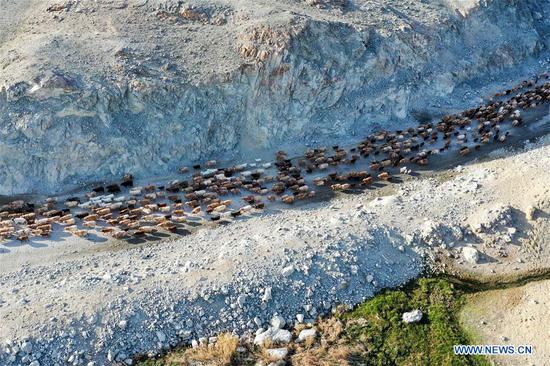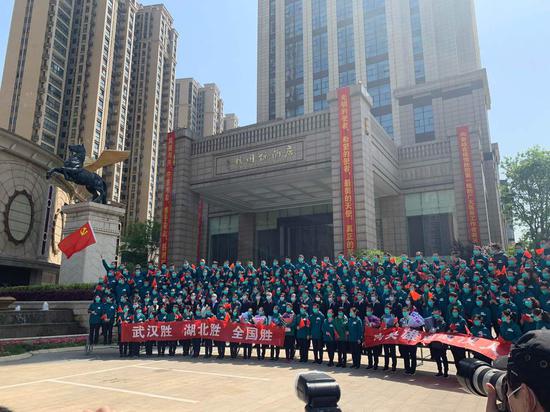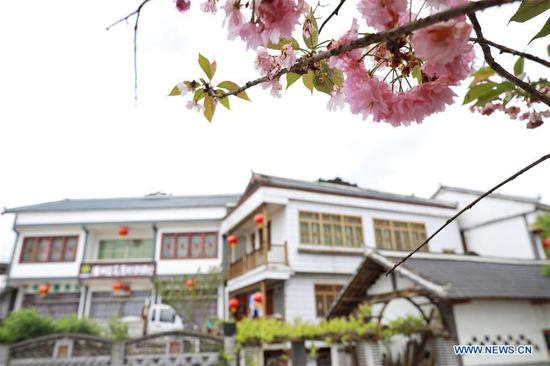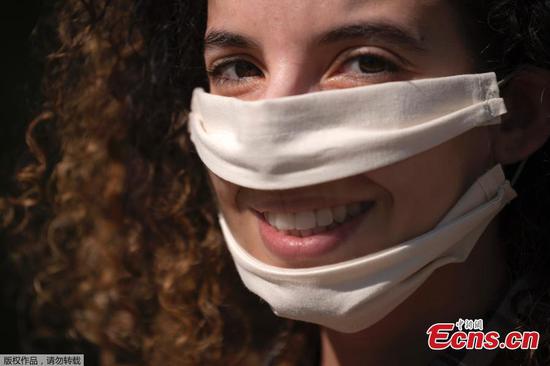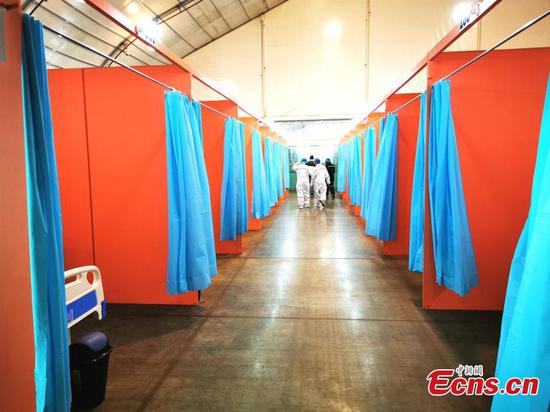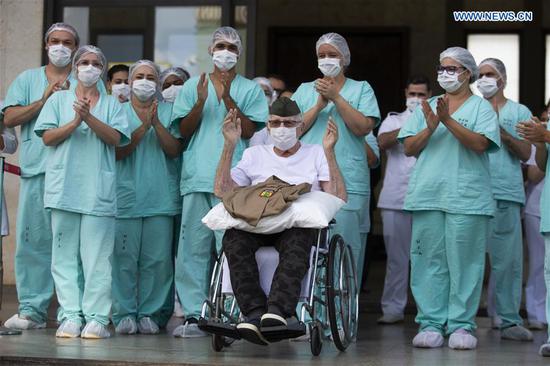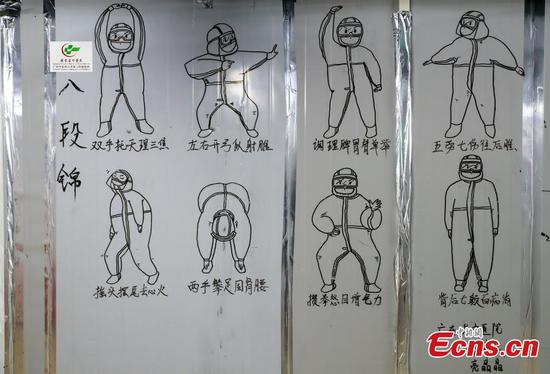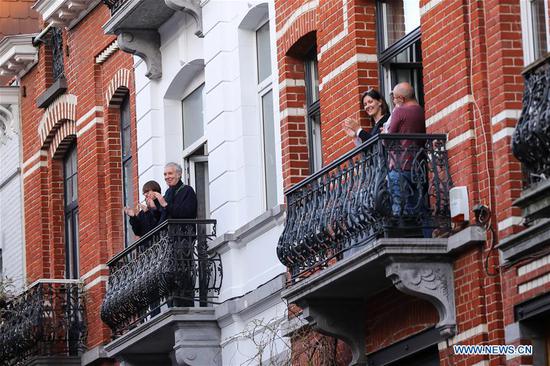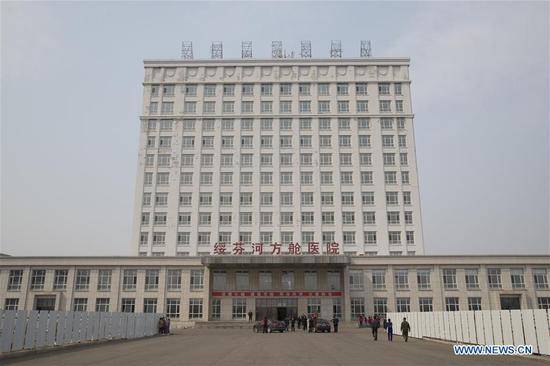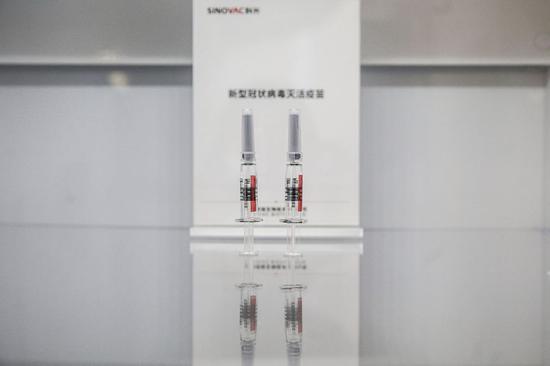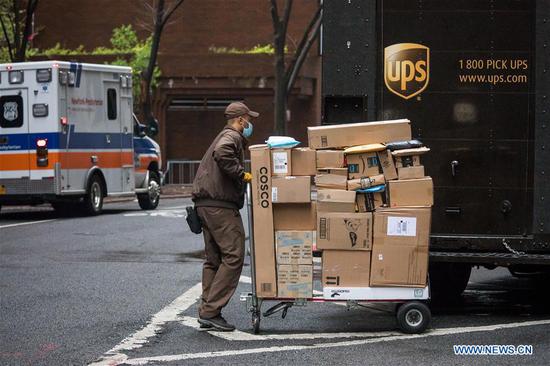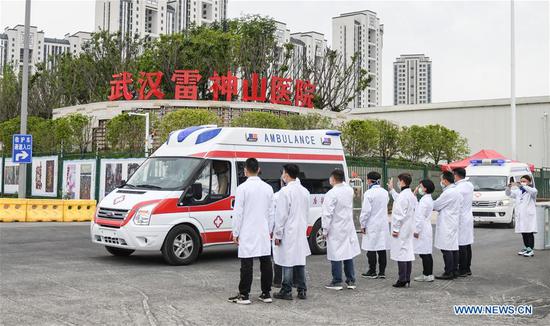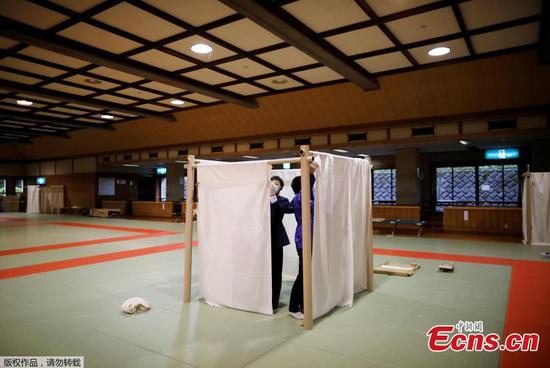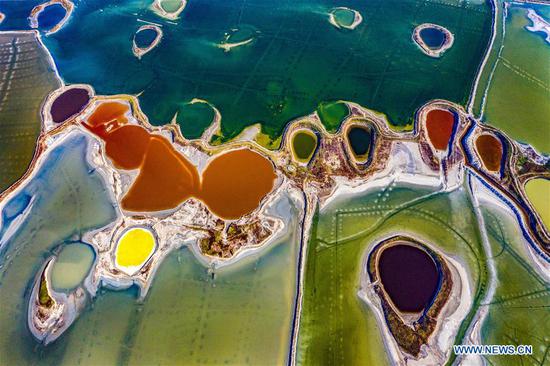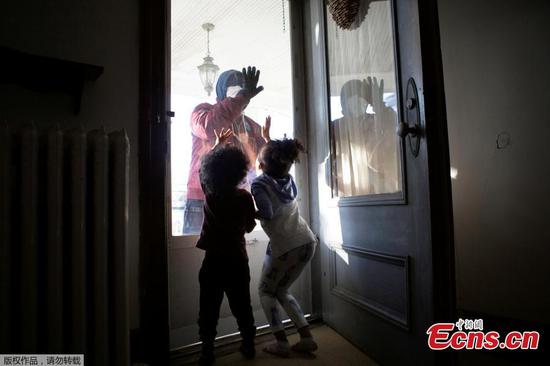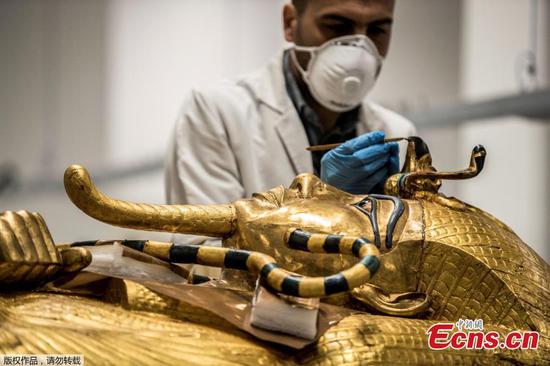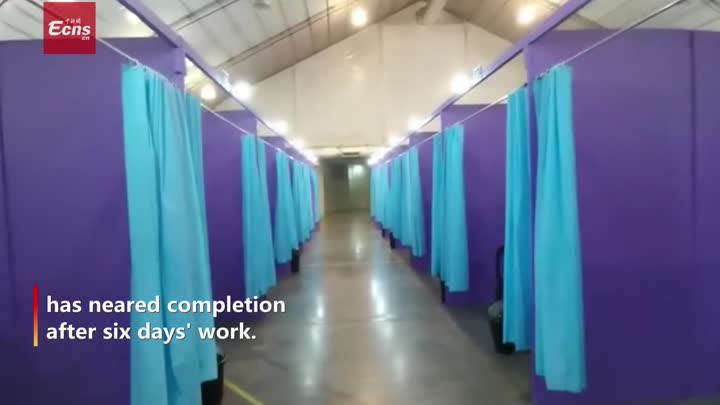
President Xi Jinping speaks during the G20 Extraordinary Leaders' Summit on COVID-19 on March 26. The president participated in the summit, which was in the form of a videoconference, at the Great Hall of the People in Beijing. (Photo/Xinhua)
Vision of community with shared future for mankind vital amid crisis, experts say
As the novel coronavirus pandemic has run rampant globally, President Xi Jinping's unremitting call for solidarity and cooperation to stem the spread of the contagion has greater relevance to coping with the common threat the world is facing, officials and experts said.
The unprecedented global public health crisis caused by COVID-19, which is a powerful reminder of the interconnectedness and vulnerability of humanity, has made Xi's vision of building a community with a shared future for mankind more significant and urgent, they said.
An article by Xi, who is also general secretary of the Communist Party of China Central Committee and chairman of the Central Military Commission, on global solidarity and cooperation to combat the COVID-19 pandemic was published on Thursday in the Qiushi Journal, the flagship magazine of the CPC Central Committee.
Solidarity and cooperation are the most powerful weapon against the disease, the article said.
As the outbreak is spreading worldwide, posing an enormous threat to life and health and bringing a formidable challenge to global public health security, the article said, it is imperative for the international community to strengthen confidence, act in unity and work together in a collective way.
Viruses respect no borders, and epidemics do not distinguish between races, it went on, adding that this global public health emergency has driven home the urgency and imperative need to build a community with a shared future for mankind.
Xi's article came as confirmed cases of COVID-19 have exceeded 2 million worldwide, with the death toll surpassing 130,000.
China has brought the domestic outbreak under control through massive, nationwide efforts and enormous sacrifices, but it still faces risks from imported cases of infections.
Since the onset of the outbreak, Xi has engaged in intensive discussions with more than 30 world leaders through meetings, telephone conversations and correspondence to promote international cooperation on combating the virus, as he stressed on various occasions that the virus can only be defeated when the international community fights in unity.
"Through these interactions, Xi demonstrated China's firm and sincere commitment to solidarity with the whole world, boosted global confidence, and led the way for international cooperation against the outbreak," State Councilor and Foreign Minister Wang Yi said in an article also published in the Qiushi Journal on Thursday.
China upholds the vision of building a community with a shared future for humanity, Xi's article said, noting that the Chinese government has acted in an open, transparent and responsible manner.
China released information on the epidemic to the World Health Organization and relevant countries and regions soon after the novel coronavirus broke out in Wuhan, Hubei province, in January. It speedily identified the genome sequence of the virus and shared it, and it provided timely updates on the outbreak to the organization and relevant countries and regions.
While working closely with the WHO, it contributed $20 million to the United Nations body to help it coordinate efforts in the fight against the pandemic.
Wang said that enhancing international cooperation in fighting COVID-19 is a telling testament to China's role as a responsible major country and its commitment to building a community with a shared future for mankind.
At the most difficult moment in its COVID-19 fight, China received assistance and help from a lot of members of the international community, and now China has also been supporting the global COVID-19 fight to the best of its ability.
China has sent 14 medical expert teams to 12 countries-including Iran, Iraq, Italy, Serbia, Cambodia, Pakistan, Venezuela and Russia-and Chinese medical experts had over 80 video conferences with their counterparts from 153 countries on how to effectively tackle and defeat the virus.
Although fighting the virus remains a formidable task, China has provided medical supplies to over 140 countries and international organizations and also facilitated countries' purchases of urgently needed anti-epidemic materials from China.
Efem N. Ubi, a senior research fellow and head of the division of International Economic Relations at the Nigerian Institute of International Affairs in Lagos, said that for China, giving aid is an obligation and synonymous with its culture and development, in line with its principles of a harmonious world society and Xi's vision of building a community with a shared future for mankind.
"Irrespective of how the virus came into being, there is no time on this earth that we need more concerted efforts and cooperation than this particular moment," the Nigerian researcher said in an article published on the website of the China Global Television Network.
At the Extraordinary G20 Leaders' Summit on COVID-19 on March 26, Xi called for an all-out global war against the outbreak, forging a collective response of control and treatment, supporting international organizations in playing active roles and strengthening macroeconomic policy coordination.
Xi's initiatives
Xi also highlighted many areas of practical cooperation, such as vaccine and therapeutics development, opening up access to an online COVID-19 knowledge center, promoting comprehensive, systematic and effective control and treatment protocols, launching a G20 COVID-19 assistance initiative, jointly ensuring the stability of global industrial and supply chains, and convening a high-level meeting on global public health security.
"These initiatives showed the direction for international efforts to tackle the outbreak. They have been highly commended by the international community," Wang said.
Former vice-foreign minister He Yafei, who is now a senior researcher at Chongyang Institute for Financial Studies at Renmin University of China, said it is important that major countries coordinate their efforts in epidemic control while assistance to less developed countries needs to be intensified.
In the fight against the pandemic, the WHO must be supported to let it play a bigger role in coordinating the emergency response, He said.
Finance officials from the G20 countries agreed on Wednesday at a videoconference to suspend debt service payments by the world's poorest countries starting from May through the end of the year.
International Monetary Fund Managing Director Kristalina Georgieva said at a news conference on the same day that more than 100 countries have asked the multilateral lender for emergency financing amid the COVID-19 pandemic.
"The reality is that anyone's fight against the virus is everyone's fight. More than ever, we need global solidarity, a common resolve, and coordinated international efforts," Georgieva said.











